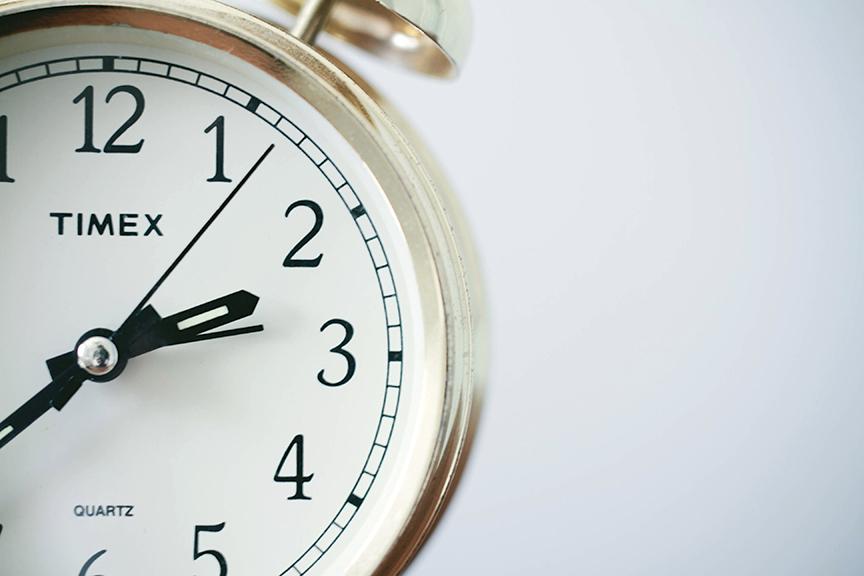It’s 11pm and most of us are either sleeping or getting ready for bed. For many, though, shift work is just starting.
More than three million people in Britain are estimated to work night shifts now, in many different occupations including health and social care, hospitality, manufacturing, transportation and the emergency services.
Being up late at night, when the body thinks it should be sleeping, creates stress for the body. Research has found that shift work is associated with higher rates of:
- Obesity
- High blood pressure & type 2 diabetes
- Digestive problems, including indigestion, heartburn, constipation, diarrhoea
- Problems sleeping, fatigue and low energy
- Stress and depression
- Difficulties in raising children
- Challenges joining in with leisure activities and hobbies
What nutritional challenges do shift workers face?
- Limited access to healthy foods. There are often fewer food choices late at night, with cafes and restaurants closed, leaving shift workers resorting to fast food and vending machine snacks.
- High caffeine intake. Many shift workers drink caffeinated beverages to help them to carry on through the night. The effects of caffeine may last up to 8 hours – making falling asleep and staying asleep after work more difficult.
- Dehydration. When drunk in large quantities, coffee is a diuretic, so shift workers who are not drinking enough water at work can become dehydrated and feel fatigued.
What foods should shift workers avoid?
- Sugary, nutrient-poor foods, like chocolate or sugary drinks. These might give you a quick energy boost, but do little to keep you going over longer periods of time.
- Fatty, fried and spicy foods. Typical fast food is likely to lead to heartburn, indigestion and can make you feel more tired.
- Caffeinated drinks and foods. Limit caffeine intake to around 400 mg caffeine per day, which is about 3 cups of coffee.
- Caffeine-containing drinks and foods within 6-8 hours of expected sleep. Limiting caffeine before bed can help limit the impact of caffeine on sleep.
- Energy drinks. Not only do energy drinks contain caffeine, they are also high in sugar.
- Alcohol after work. Alcohol may make you feel relaxed but can reduce the quality of your sleep.
Here’s a shift-work strategy to fuel you through your night shift:
1) Time your meals carefully – eat your “main meal” before going to work. A Slender Wonder shake is perfectly balanced to keep you going during the night shift.
2) Pack your own delicious meal – so as to not be limited to the contents of the vending machine. Plan to eat a smaller meal or snack at work, rather than a larger meal (which can lead to digestive problems and can leave you feeling sleepy). If you divide your Slender Wonder Shake into two servings, you will still be able to stick to your weight loss regime.
3) Eat balanced mini-meals – to help you stay awake and alert. Try mini-meals balanced with vegetables or fruit, whole grains, low fat dairy products or lean proteins:
- Veggies (carrots, sugar snap peas, cucumber) & fat-free cottage cheese
- Cottage cheese with fruit
- Hard-boiled egg with veggies
- Soup
- 2 crackers and cottage cheese
4) Hydrate with water and caffeine-free beverages:
- Water
- Caffeine-free coffee and/or tea
- Broth-based soup
- Low-sodium 100% vegetable juices
5) After your shift, prepare your body for sleep – enjoy a light snack of carbohydrate rich foods (eg crackers and cheese), which often lead to you feeling sleepy and can help you to not wake up from feeling hungry. If you are not hungry before bed, try cutting out a snack during your shift.
6) Be physically active each day – but avoid activity one hour before bed.
7) Talk to your managers – ask about making healthier choices available throughout your shift.
Shift work is hard on the body. Ultimately, you need to pay attention to what nutritional strategy helps you get through your shift while maintaining your overall health.;

This blog Nutrition and Shift Work helped me with my grandmother’s diabetes issues! Kiss you all!